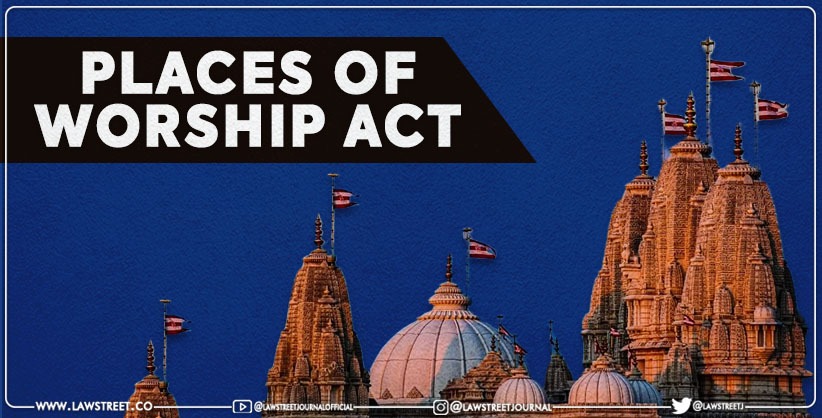NEW DELHI: The Supreme Court is likely to hear on September 9 a plea by BJP leader and advocate Ashwini Kumar Upadhyay challenging validity of the Places of Worship (Special Provisions) Act, 1991, which mandated maintaining character of religious places as prevailed on August 15, 1947.
On Friday, Upadhyay made an urgent mentioning before a bench of Chief Justice U U Lalit and Justice S Ravindra Bhat that the matter was shown to be listed on September 9 in computer-generated list and should not be deleted.
The court allowed his plea, meaning thereby, the matter would be taken up for hearing on Friday, September 9.
It is pertinent to note that Upadhyay has filed the writ petition in 2020 and the top court issued notice on March 12, 2021 in the matter but the Union government has yet not filed its reply.
So far, as many as nine petitions including by former BJP MP Chintamani Malviya, BJP leader Subramanium Swamy, advocate Rudra Vikram Singh, Swami Jeetendranand Saraswati, a religious leader, and a retired Army officer Anil Kabotra have been filed questioning the vires of the 1991 law.
The petitioners claimed provisions of the law not only offended fundamental rights to equality, non discrimination and freedom to practice religion but also principles of secularism, which is integral part of Preamble and the basic structure of the Constitution.
They asked the court to declare that Section 2 of the 1991 Act is void and unconstitutional for being violative of fundamental rights, so far as it sought to validate places of worship, illegally made by "barbaric invaders".
The law, which excluded Ayodhya dispute from its purview, was unconstitutional for many reasons, including that it offended right of Hindus, Jains, Buddhists and Sikhs to pray, profess, practice and propagate religion, and infringed upon their rights to manage, maintain and administer the places of worship and pilgrimage, their plea said.
Further, the plea claimed, the law deprived Hindus, Jains, Buddhists and Sikhs from owning and acquiring religious properties belonging to deity, misappropriated by other communities and took away their right of judicial remedy to take back their places of worship and pilgrimage and the property which belonged to deity.
The plea also contended that the law also legalised barbarian acts of invaders and violated the doctrine of Hindu law that "temple property is never lost even if enjoyed by strangers for years and even the king cannot take away property as deity is embodiment of God and is juristic person, represents infinite the timeless and cannot be confined by the shackles of time".
Jamiat Ulama-i-Hind, a prominent Muslim organisation, has sought impleadment in the case, saying the plea by Upadhyay "seeks to indirectly target places of worship which are presently of Muslim character".
Importantly, an apex court bench led by Justice D Y Chandrachud had on May 20, while hearing a plea against survey at Gyanvapi mosque in Varanasi, had orally said the ascertainment of religious character is not barred under the 1991 Act. However, there are various nuances of the Act which will fall for consideration when the matter is taken up for hearing.

















